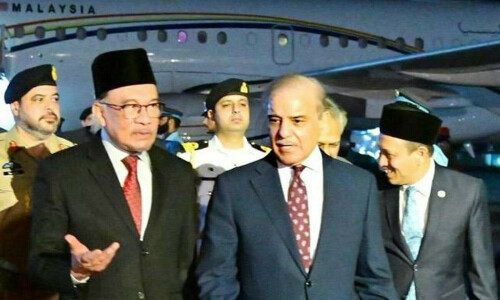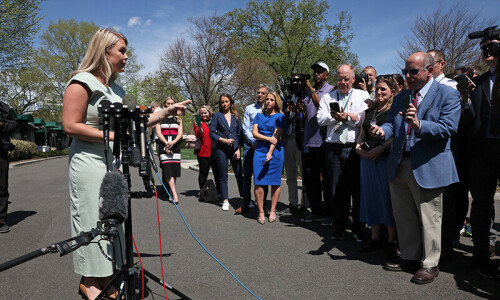
KARACHI: “If no one was buying, people wouldn’t dig it out,” pointed out well-known archaeologist and museologist Dr Asma Ibrahim during her interesting talk on ‘Illicit trade in antiquities: the tale of the Persian Mummy’ as part of the Aga Khan University’s Special Lecture Series on Tuesday.
“In supply and demand, you supply when there is a demand,” she added. With organised crime in the shape of thefts from museums, illicit excavations, removal of cultural artefacts during armed conflicts and forged documents, the illicit trade of antiquities is a $6 billion industry. And it thrives despite policy interventions because there are no big punishments for it. “That’s why efforts to contain such trade all over the world have not been successful,” said Dr Ibrahim.
Large collections of sculptures have been smuggled out of Pakistan this way and have been sold at Christie’s auctions. “When it is explained to the people involved in illicit excavations that they are selling off their valuable heritage, they say that hunger is a bigger problem for them,” she said. “That is also how half of the ancient Buddhist shrines in our northern areas have been badly damaged,” she added.
“There is a source country for the artefact and then a market country where it is sold. There are usually two kinds of people involved in this kind of trade, the dealer and the supplier,” she said. “And the more a relic or artefact is on the market the more its price will fall, so there is always a rush to sell it.”
She said that the smugglers also made replicas to mix up with real antiquities before selling them. In the year 2000, Dr Ibrahim became the custodian of the infamous mummy, discovered in Balochistan, that had made headlines in the international media.
It was thought that the mummy was Iranian. Even top archaeologist Dr Ahmed Hasan Dani was deceived. He said that since Iran did not have mummies, this particular mummy must have started its journey from Egypt and probably came to Iran from there. But Dr Ibrahim said that it was a fake.
The mummy was found at Reki House in Balochistan, owned by a camel breeder. He wanted a billion dollars for it. But the mummy was seized as an archaeological treasure and brought to Karachi, where Dr Ibrahim saw it for the first time. At first it looked genuine to her too with cuneiform symbols and a gold casing. But on closer inspection, it was just a fake.
“I taught myself the cuneiform language from a grammar book to be able to read the message on the mummy. It read ‘I am the daughter of King Xerxes’ but there were serious problems with the way the message was written. They wanted to make it look like ancient text but had used recent Persian language,” she shared.
They ran x-rays and ultrasounds on her to find out that she was not a grown woman as the princess, daughter of King Xerxes, was expected to be around 21 years of age at least. Her bone structure was not that developed either and proved to be of someone around the age of 16. Further investigations showed physical injuries where her spinal column had been broken into two. She had not died a natural death. On removing her casing they also found blond hair, which had turned golden and grey because of ageing chemicals. She was not ancient at all; she was someone who had died in 1996.
Two more such mummies also turned up in Balochistan around this time to be sold in the relics market. “But due to the documentation of this case and a BBC documentary about her, this kind of crime where either someone was murdered to be mummified or they were dug out from a grave for the purpose, was stopped because the fraud was exposed and no one was to going to buy any more Persian mummies,” concluded Dr Ibrahim.
Published in Dawn, May 10th, 2017














































